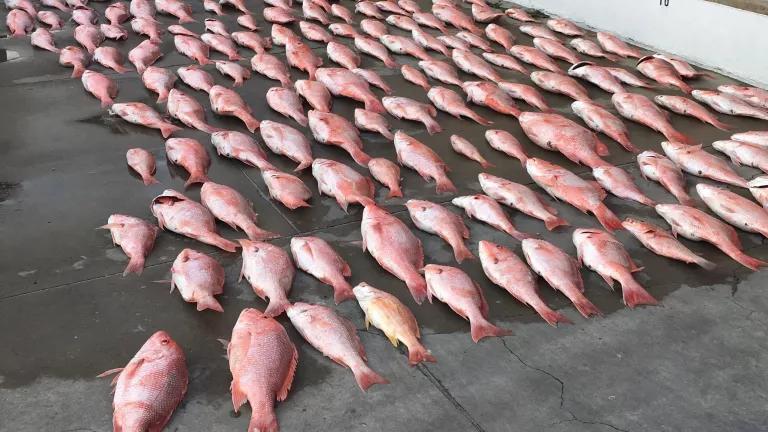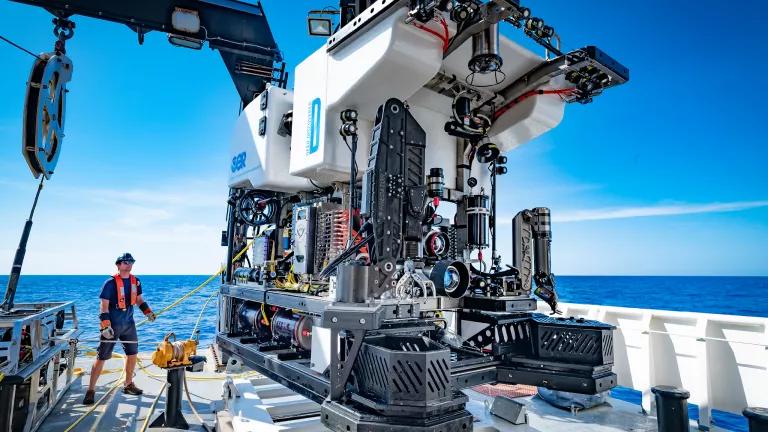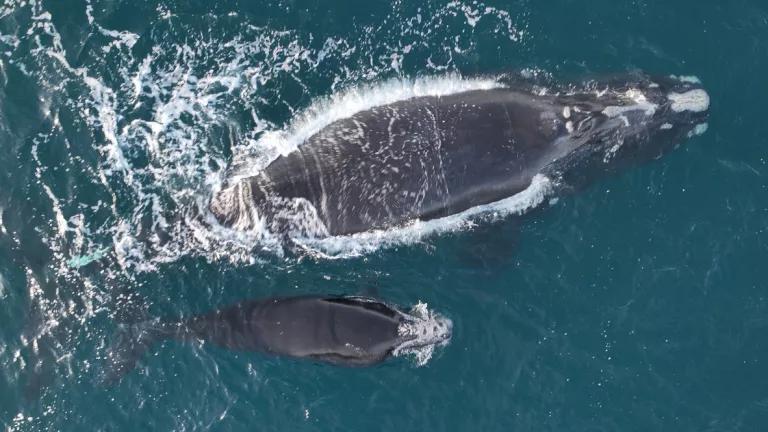Congress Shows How U.S. Must Lead to End Illegal Fishing
House Committee hearing illuminates the dirty secrets tied to the seafood we eat—from pirate fishing to shark finning to seafood slavery—and how the U.S. should leverage existing law to stamp out illegal fishing.

At a House Natural Resources Committee hearing today, Congress is shining a spotlight on the crisis of illegal fishing. Representatives are asking the National Marine Fisheries Service (NMFS) why the U.S. isn’t fully exercising its power to do more to combat illegal, unregulated, and unreported (IUU) fishing and modern slavery in the seafood industry.
Illegal fishing has devastating impacts on fish and other marine wildlife, like sharks, dolphins and sea turtles, and damages entire ocean ecosystems. It also threatens human lives by undermining food security for communities around the world and, all too often, relying on modern slavery to man fishing boats that spend years at sea in order to maximize profits for industrial fishing companies.
The U.S. already has strong laws on the books to pressure foreign nations to end IUU fishing within their fleets. Specifically, the High Seas Driftnet Fishing Moratorium Protection Act directs the Secretary of Commerce, through NMFS, to identify nations whose vessels have engaged in IUU fishing during the previous three years in a biennial IUU Report to Congress. Violations under the Act generally include IUU fishing, bycatch of protected marine living resources, and fishing for sharks on the high seas.
When there are violations, there is a hammer: The U.S. can ultimately issue “negative certifications” and penalize the nations found guilty of violations by denying port privileges and banning targeted seafood imports from violators—and thus use the power of the U.S. seafood market to push foreign nations to clean up the IUU fishing problems that plague their fleets. This latter penalty could be especially effective because the U.S. is the world’s second largest seafood market.
But despite the strength of this law, the U.S. has rarely certified or penalized countries for IUU fishing. In fact, NMFS has demonstrated a pattern of repeatedly identifying nations for IUU fishing in consecutive Reports to Congress, then issuing a positive certification and claiming that the reasons for listing have been corrected…only to list the nation again in the next cycle of identifications for similar, unresolved IUU fishing problems.
Also of note, NMFS has almost never identified any nation for shark-related violations—in spite of the fact that Congress has made very clear its intention that NMFS use the Act assertively to protect sharks.
If the U.S. really wanted to be a leader on ending IUU fishing and conserving sharks, NMFS would not hesitate to use one of the strongest tools we have to pressure foreign nations to crack down on IUU fishing—and all its devastating impacts on humans, wildlife, and ocean ecosystems—within their fleets.
NRDC made this argument to NMFS nearly a year ago, when we sent the agency a letter providing information to support identification of over 50 nations for shark-related violations alone. Some of the evidence we presented highlighted systemic problems within the fleets, with violations occurring in multiple vessels and over multiple years. But despite this preponderance of evidence, NMFS failed to identify a single nation for shark-related violations in its 2019 IUU Report to Congress.
Witnesses will also highlight the need for improved seafood traceability to counter IUU fishing and seafood slavery. NRDC has consistently urged the agency to strengthen the United States’ traceability rule, the Seafood Import Monitoring Program, which is intended to help U.S. agencies ensure that we don’t import IUU-fished seafood into this country.
The United States is poised to be a global leader in cleaning up the Outlaw Ocean and the House Natural Resources Committee hearing today provides a spotlight on the ways that the U.S. can do better.



